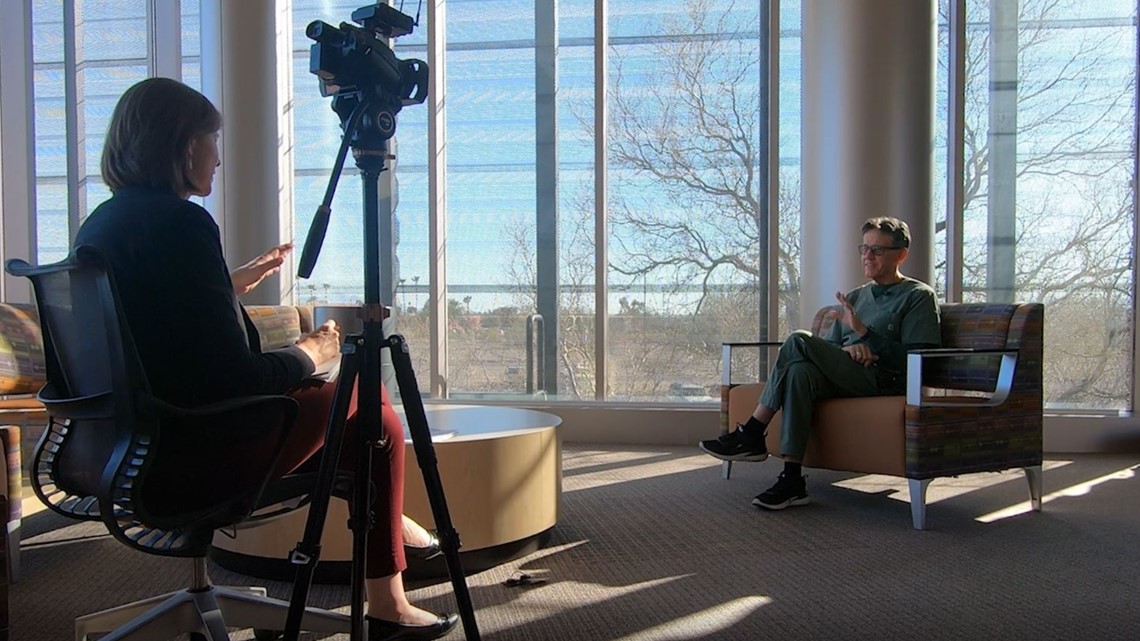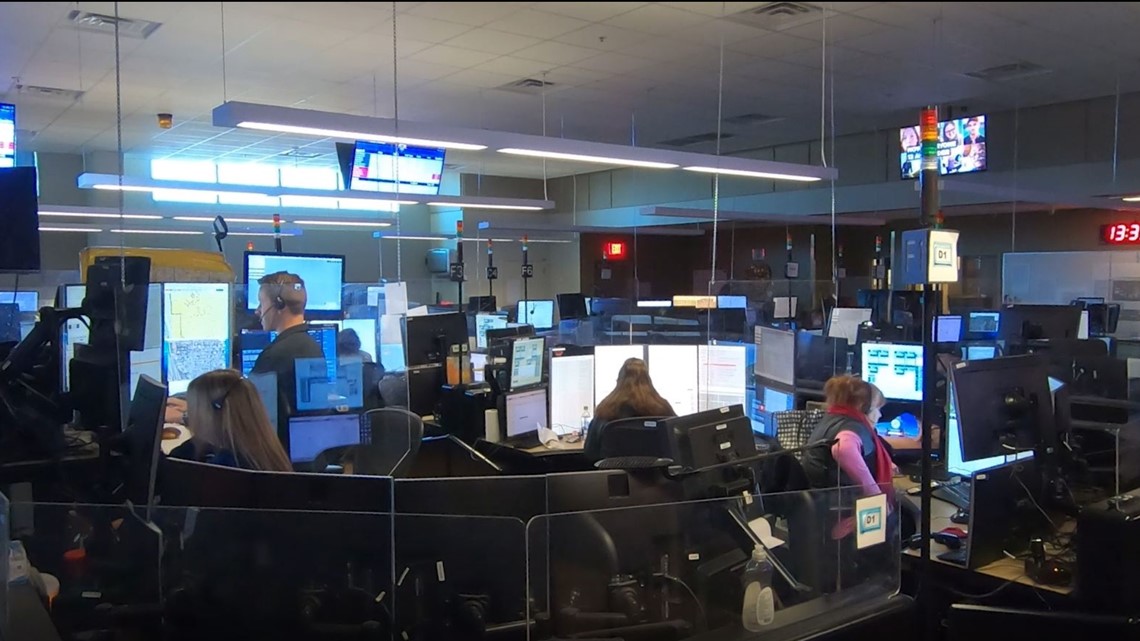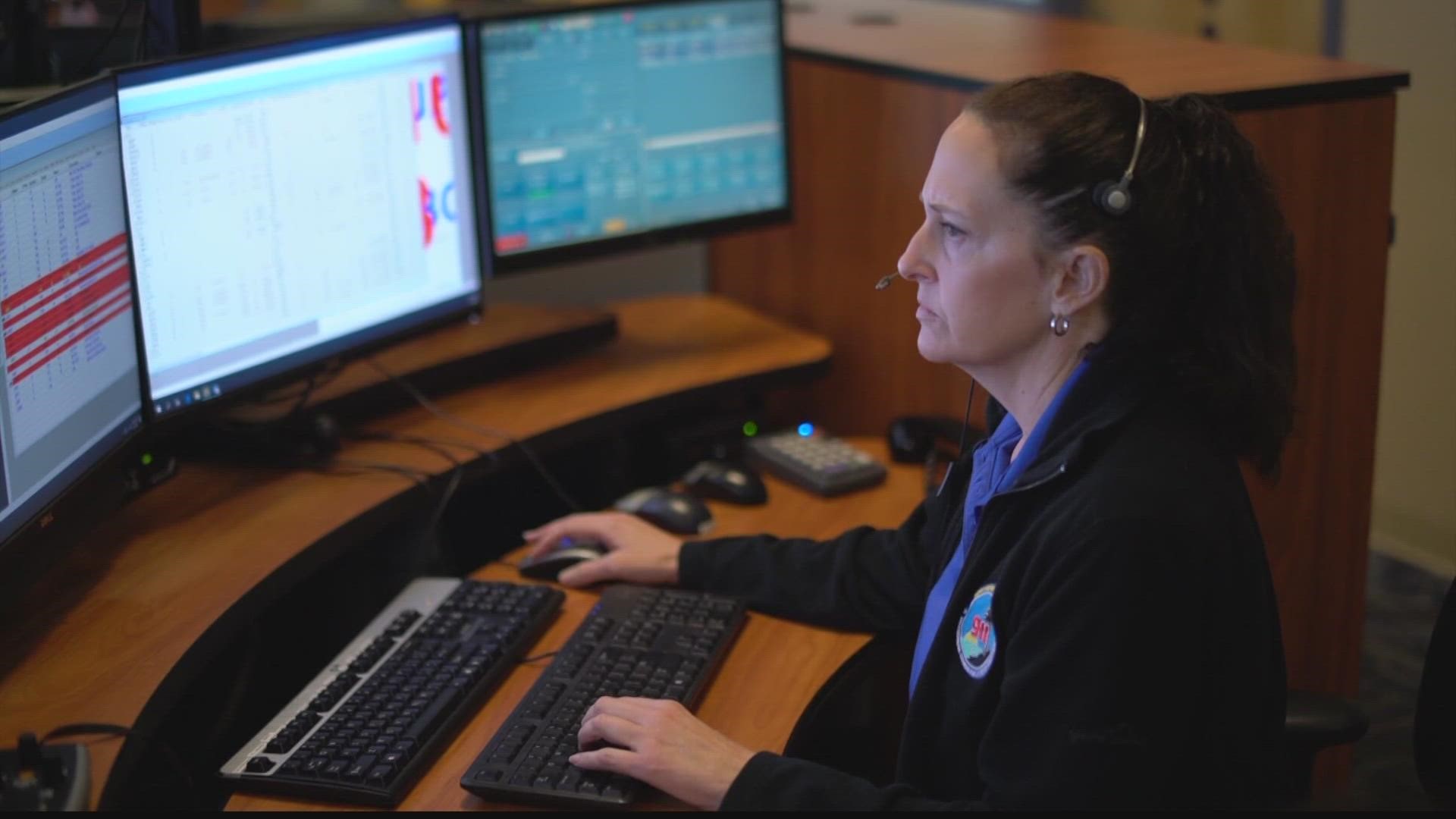TUCSON, Ariz. — People call 911 in crisis. While many people associate the number with a crime or medical emergency involving physical health, that number is increasingly being used to address mental health issues as well.
Athens-Clarke County dispatch said for them, one in every three calls has some type of mental health tie. That’s why they and other metro communities are now considering whether to embed a mental health clinician in the 911 process.
11Alive investigators traveled to Tucson, Arizona, a community that is already doing this program to see how it works.
“My personal mission is to make crisis services just as prevalent and ubiquitous as all emergency services,” said Amy Devins, supervisor of first responder services with Arizona Complete Health, which helps oversee the program.
How the program works
In Tucson, the crisis professional sits in the same room and has the same training on the dispatch system. When a call comes in, the operator triages the call to decide if it needs police involvement, fire, EMS or a mental health response. If it’s the latter, the call gets transferred.


The behavioral health specialist then assesses to determine if the issue can be handled over the phone. If not, and the need is immediate, they can send a member of the police department’s mental health task force.
If the need is not as urgent, a mobile crisis team can go. And of course, if the crisis professional gathers information that changes the severity of the call, it can always be transferred back to dispatch for traditional police and EMS response.
The program started three years ago with two types of calls: an unarmed person having thoughts of suicide and public nuisance.
“Somebody at the gas station, gas station attendant, who notices somebody acting strangely outside, right? Maybe yelling at traffic,” explained Johnny Gasper, manager of Crisis Systems with Arizona Complete Health.
Now, 911 dispatchers divert about 1,300 calls to crisis professionals every month. Because someone trained to respond to crisis is on the line, Gasper said 40% of those calls are resolved by phone.
Devins points out that some homeless or low-income families may have a cell phone, but limited or no minutes left on their plan. People don’t need either to call 911 as long as the phone is operational. That’s why some calls are simply from people who need to talk or find out how to access services.
Knowing when it's a mental health call
Christina Bickelmann, the executive director for NAMI in Southern Arizona said the program is working to educate people on what to say when they call for help. Bickelmann said it’s important to let dispatch know when one believes the incident involves mental health.


“Tell the police it’s a mental health crisis health situation and ask for a CIT (crisis intervention trained) officer to respond,” Bickelmann said.
Sergeant Jason Winsky with the Tucson Police Department said the training and increased focus on mental health at the dispatch level has been critical to improving their response.
“Some of the really bad outcomes that we’ve seen from law enforcement's use of force started with a mangled 911 call,” he said, not intending in anyway to criticize dispatch, but relaying the importance of the information they gather and provide.
#Keeping is an investigative series that exposes the gaps in Georgia's mental health care system that cause thousands of children to be surrendered to state custody.
READ MORE FROM OUR #KEEPING SERIES: Georgia families struggling with access to mental healthcare will soon see changes

